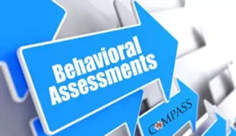[av_post_metadata post_selected=” seperator=’/’ before_meta_content=” after_meta_content=” margin=” margin_sync=’true’ padding=” padding_sync=’true’ av-desktop-margin=” av-desktop-margin_sync=’true’ av-desktop-padding=” av-desktop-padding_sync=’true’ av-medium-margin=” av-medium-margin_sync=’true’ av-medium-padding=” av-medium-padding_sync=’true’ av-small-margin=” av-small-margin_sync=’true’ av-small-padding=” av-small-padding_sync=’true’ av-mini-margin=” av-mini-margin_sync=’true’ av-mini-padding=” av-mini-padding_sync=’true’ align=’left’ custom_title=” size=” av-desktop-font-size=” av-medium-font-size=” av-small-font-size=” av-mini-font-size=” alb_description=” id=” custom_class=” template_class=” av_uid=’av-lhv3bfbh’ sc_version=’1.0′ admin_preview_bg=”]
[av_metadata_item metadata=’published’ before_meta=” after_meta=” link_meta=’default’ link_target=” av_uid=’av-lhv3b212′ sc_version=’1.0′]
[av_metadata_item metadata=’categories’ before_meta=’in’ after_meta=” link_meta=’default’ link_target=” av_uid=’av-lhv3bbu0′ sc_version=’1.0′]
[/av_post_metadata]
 The employee selection process is not given the time it deserves. It has been a long time (23 years to be precise) since a study has explored the best methods for selecting top-performing employees by amassing and re-analyzing data from hundreds of previous smaller studies.
The employee selection process is not given the time it deserves. It has been a long time (23 years to be precise) since a study has explored the best methods for selecting top-performing employees by amassing and re-analyzing data from hundreds of previous smaller studies.
In this most recent study exploring the validity of different selection methods, much of what we have always known in the employee selection space still holds true. It explores the degree to which a measure accurately predicts future job performance. Accordingly, you must ensure that your selection methods meet three key criteria to have the best chance of success in employee selection. Your tools and processes need to:
- Tap and assess the knowledge, skills, abilities, and characteristics required to do the job successfully.
- Measure those elements reliably (i.e., measure the characteristics dependably or consistently).
- Generally, taking a structured approach leads to more consistent, fair/unbiased, and effective decisions. (i.e., one that is consistently delivered across all candidates for a role and evaluated against clearly established criteria)
Employee Selection Insights
This newer meta-analytic study also gives us insights into selection tools that have become more widely used recently. Emotional intelligence and personality assessments are two. As certified Predictive Index® practitioners, the findings around personality assessments are of particular interest to us. We often advise and inform our clients’ practices in this area.
According to research, personality-based assessments are more predictive of performance when they focus on work-related behaviors. (i.e., how candidates show up at work) General personality traits such as conscientiousness or agreeableness are devoid of context.
Specific findings like these only reaffirm the value the PI Behavioral Assessment™ can bring to a company’s employee selection process. The tool asks candidates two questions about how they show up at work. It is backed up by decades of research demonstrating its validity and reliability within work-related contexts. It provides a methodology for establishing a standard against which to evaluate the candidate’s fit to the job requirements from a behavioral profile perspective. Finally, it offers structured interview guides to explore relevant areas of candidate alignment or misalignment with the role.
If you would like to learn more about how to leverage tools like the PI Behavioral Assessment™ to enhance your hiring process and boost your new hire retention and job success rates, feel free to reach out to connect with one of our certified PI® practitioners.









